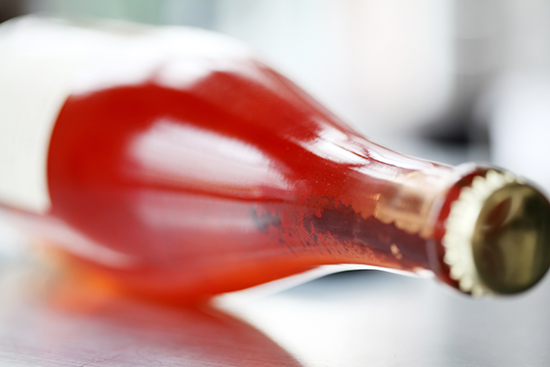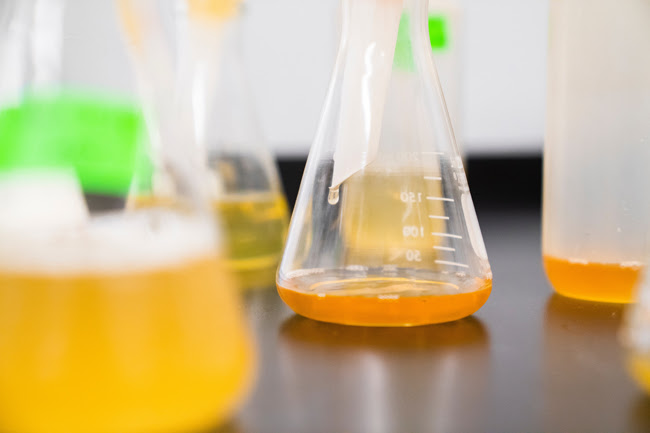The trade has been rightly chattering about the upcoming duty rises. For those of you who may have been hibernating since December 22nd 2022, the government in its wisdom have introduced a new way of calculating duty on wines and spirits. It’s a veritable ragbag of arbitrary (to most of us in the wine trade) tinkerings – suffice to say that the majority of still wines will be increasing by 44p ex vat, sparkling wines will be aligned with still duty, and wines that are higher in alcohol will take a hit.
Under EU rules that still apply for the next couple of weeks, wine and fortified wines are taxed under three bands, with another higher bracket for sparkling wine. Under the government’s new proposals there will be 27 different rates for wines on a rising scale that moves with each half percentage point increase in alcohol volume.
Here is a summary:
All products with 8.5%-22% alcohol will be taxed at £28.50/litre of pure alcohol EXCEPT still and sparkling wine with 11.5%-14.5%.
Still wine
Any wine between 11.5%-14.5% (abv) is treated as 12.5%. The duty increase is therefore +£0.44 (per 0.75cl bottle)
This includes many (but not all) Pet Nats and Frizzantes which historically have had still wine duty applied.
Any wines below 11.5% will see a lower increase; any wines above 14.5% will have a higher rate applied, calculated on the %abv (@£28.50 per litre of alcohol)
Sparkling wine
For most sparkling wines (between 11.5%-14.5%) the duty reduces by -£0.19 (per 0.75cl bottle), except the Pet Nats and Frizzantes mentioned above.
Sparkling wine below 11.5% is again calculated on its abv (at £28.50 per litre of alcohol), so an 11% wine = 28.50 x 0.11(%) x 0.75(ltr) = £2.35 = –£0.51 reduction in duty
Fortified Wines
Increase depending on the % abv of the wine (at £28.50 per litre of alcohol). Some existing lighter wines (e.g. manzanilla at 15%abv) which were previously taxed at normal still wine levels, will see a higher increase as they now fall into a higher tax bracket.
Spirits
Increase in duty depending on the % abv – all products with 22% alcohol or more taxed at £31.64/ltr of pure alc.
Penalizing wine on account of its alcoholic content is ridiculous and reveals an ignorance of the subject in general, and wine, in particular.
The first thing to point out is the seemingly arbitrary nature of placing wines into categories by dint of their abv. If you are making wines in Puglia, Priorat or Chateauneuf, you are on a hiding to nothing as ripeness in red grapes may well come naturally at 15%. Pity those Primitivos. Penalizing wine on account of its alcoholic content is ridiculous and reveals an ignorance of the subject in general, and wine, in particular. Winemakers don’t set out to make high-alcohol wines, but to faithfully reflect the vintage and weather conditions of their region and to make the truest representations of what nature gives them. To obtain appellation status in many cases, wines are expected to have minimum abvs.
Approximately 80% of all wine consumed in the UK is above a threshold of 11.5 per cent alcohol content, where duty increases. (WSTA figures). “There isn’t a lot the winemakers can do about it because you can’t control ABV [alcohol by volume] in an agricultural product. It is the sun that dictates how sweet the grape is and the sugar that dictates the ABV,” said Lucy Panton, WSTA’s director of communications. (Quoted in The Financial Times)
Let’s look at the entire premise of duty, a form of tax exacted by government on the drinks industry (which is then passed onto the consumer) as a revenue-raising strategy. In spite of what some people in government and the health lobby will maintain, this is not a tax on alcohol, but rather on the people who sell and drink booze.
Approximately 80% of all wine consumed in the UK is above a threshold of 11.5 per cent alcohol content, where duty increases.
The WSTA estimates that the changes will bring an extra £250mn to the exchequer from wine, which became the most widely consumed alcoholic product in the UK during the pandemic. But the additional revenues to the exchequer will be offset by falls in duties on beer and cider. Again, not a lot of this makes sense.
Duty thus is a tax used by the government to absolve itself from making serious decisions about the health of our nation, in particular our relationship with alcohol in this country. If you treat wine (in this instance) with respect, then it serves a social and gastronomic function. Abuse the creature, and it takes its revenge. It is a fine line to use taxation to influence society’s behaviour – too high and your tax revenues are reduced if you achieve the desired outcome people away from drink. None of it works. You may push away from one drink to another. And those who have a chronic drinking problem that leads to severe health problems are not going to be deterred by price. As we know from Prohibition, the problems caused by alcohol consumption cannot be solved by knee-jerk reactions
Wine has always been targeted in duty rises whereas so-called home grown industry (beer and cider) have been seen as special cases. This gives a lie to the idea that these taxes are about health.
Duty is a tax used by the government to absolve itself from making serious decisions about the health of our nation, in particular our relationship with alcohol in this country.
I don’t see wine as a mere unit of alcohol or a simple means of getting drunk. If you think about how wine is consumed, it is normally around a dinner table with food and company. It is a form of food. You rarely see wine happy hours in city centre pubs or hear of many instances where loutish behaviour is inspired by wine as opposed to beer, cheap cocktails and cider. The culture of wine enjoyment tends to be different, but that is not legislated for, as it is perceived as another alcoholic beverage. That’s as may be. What we don’t know about these taxes is whether they are actually spent on the health service or on improving health outcomes (education for example). If they are not hypothecated, then their imposition seems even more about revenue raising.
In terms of measuring behaviour by using taxation, it seems that other countries get by with considerably lower tax burdens on alcohol. Every country, of course, has a unique set of circumstances and drinks culture. Wine has been discriminated against for years. One can only suppose that it is an easier target than beer.
Perhaps the most pernicious – and regressive – aspect of the new duty changes is not the unwelcome rises, but the extra burden of bureaucracy that is being levied on companies of all sizes. Rather than simplifying the system, it has created a more complicated one, with hundreds and thousands of prices having to be recalculated, new lists needing to be drawn up, explanations having to be mailed. This is a bureaucratic gift that will keep on giving. The same wine may well be in two different duty categories in two successive vintages. All this on top of the ever-increasing number of rules and regulations imposed since we left the single market has put considerable extra costs on running a business. When it is a small business then those costs are proportionately higher.
Nor is this measure going to encourage transparency on labelling. A producer may well round down significantly to ensure that a wine that does not drop into a higher duty category.
Rather than simplifying the system, it has created a more complicated one, with hundreds and thousands of prices having to be recalculated, new lists needing to be drawn up, explanations having to be mailed. This is a bureaucratic gift that will keep on giving.
Anyway, the questions that need to be answered are the following. What is duty for? What is it actually funding and is it proven that the money is being channelled exclusively for that purpose or just going into general government expenditure. Is it the best way of collecting a tax? And is it fair? Why does it discriminate on the basis of alcohol, ignoring the very different nature of the drinks in question? Why do successive governments use health as the reason for exacting this tax? Are governments held accountable for how they spend the revenue raised from duty?
What is the alternative? One modest proposal would be to align all duty bands and to freeze them five years to allow the drinks and hospitality to recover after a succession of financial hammer blows. Another might be to change the system and introduce a system of minimum pricing for alcohol. Or if it is the amount of alcohol circulating around the system that is the concern, introduce a levy on supermarkets and big importers, and reduce or eliminate the duty altogether. It would be good to have some authoritative research that investigates whether taxation is the most effective means of modifying social behaviour or whether we need to look at changing our drinking culture by means of education.




